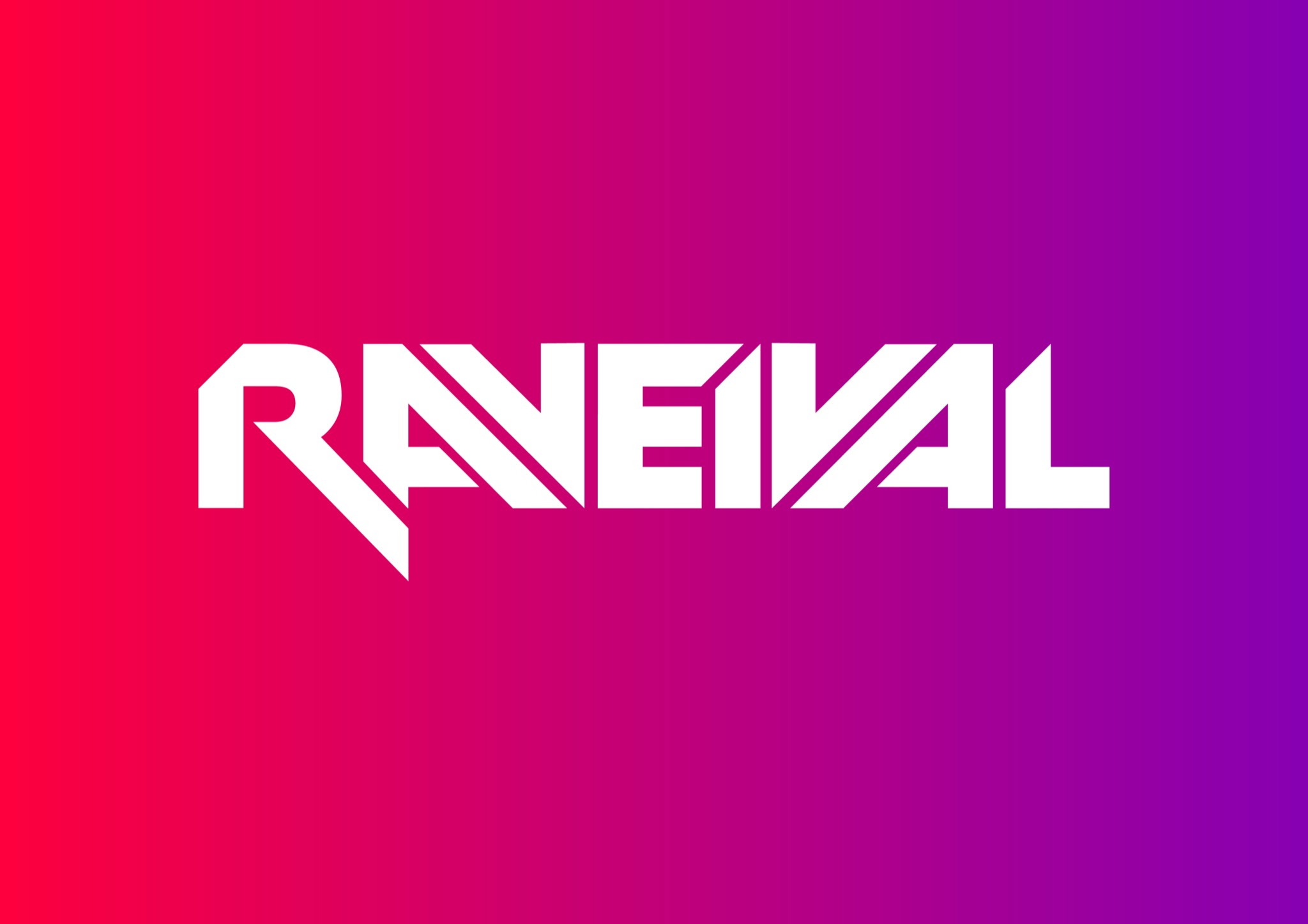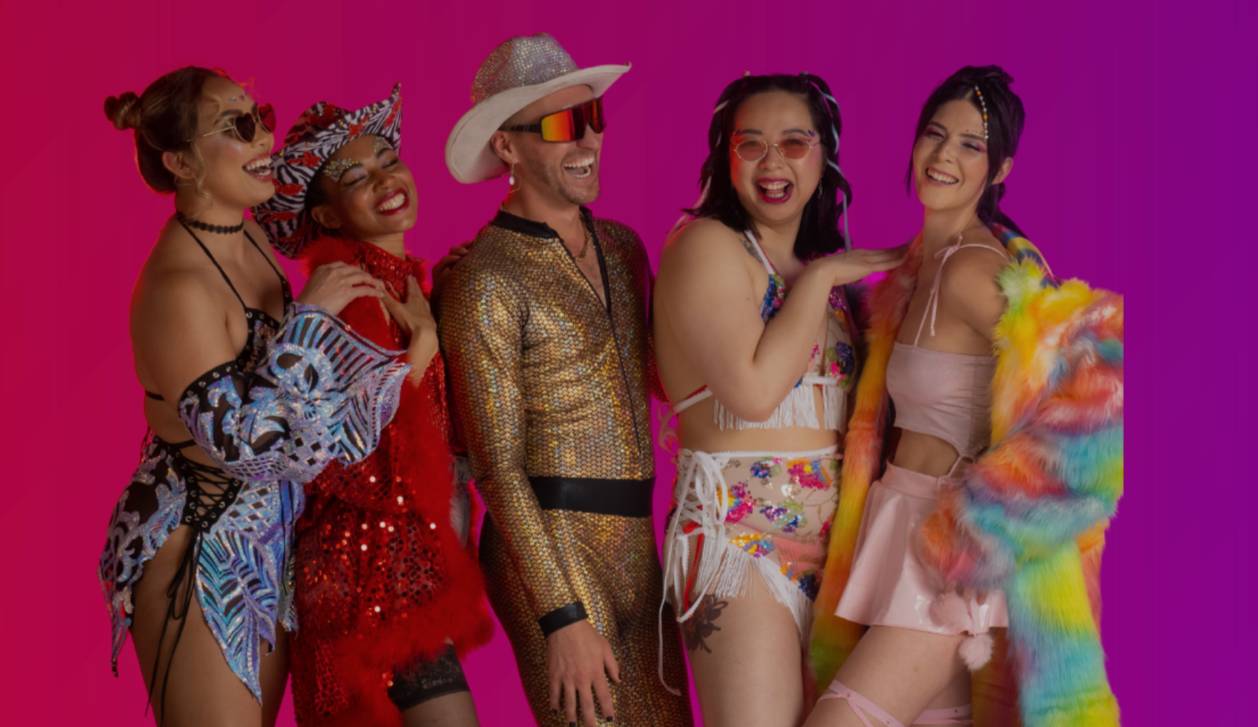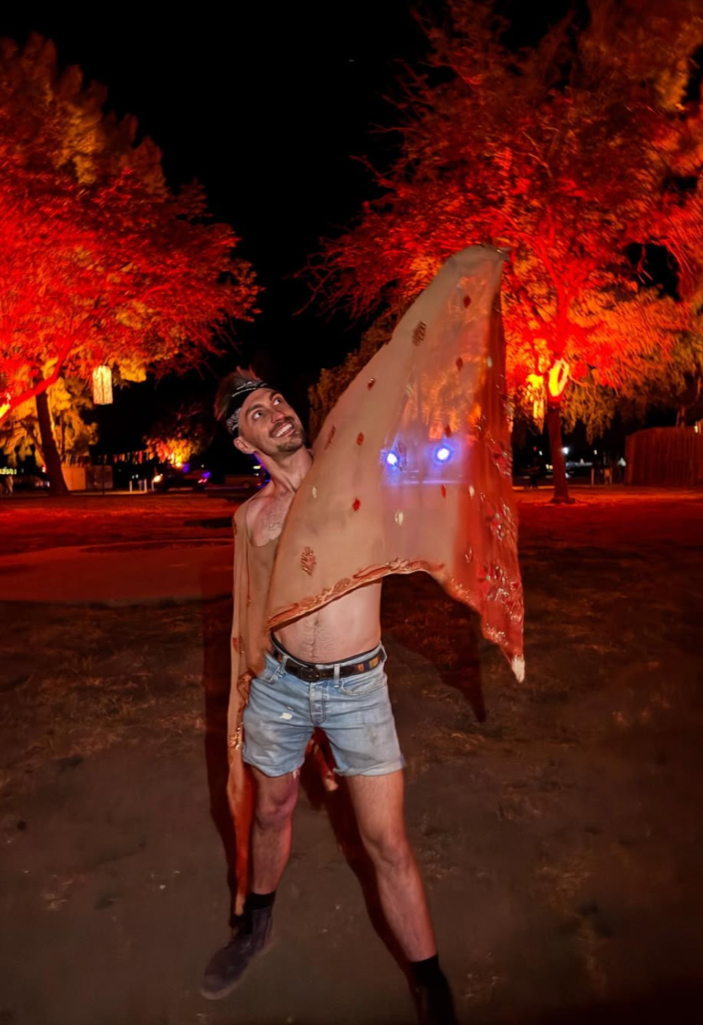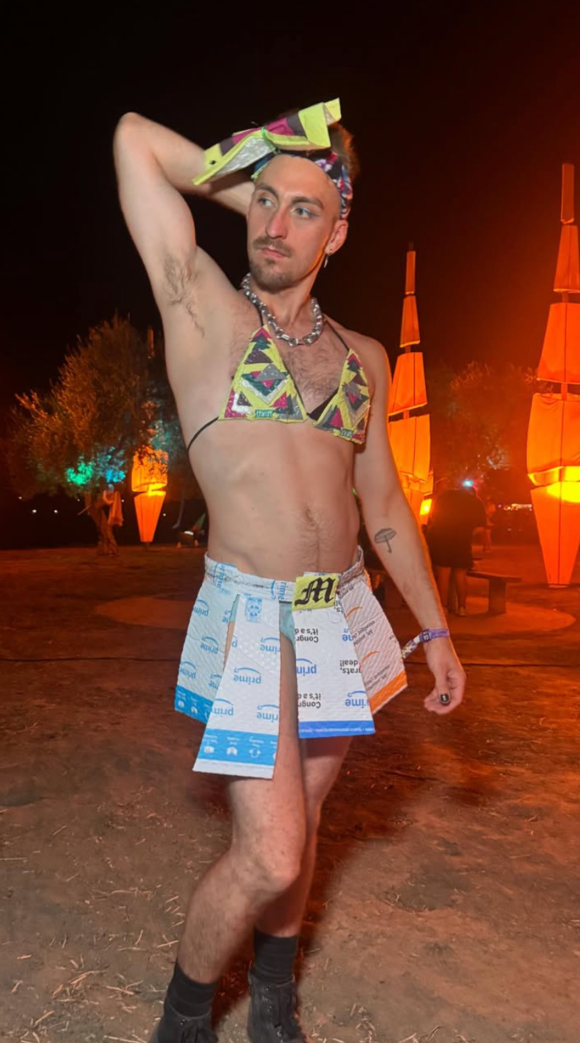
Raveival challenges fast-fashion narrative with PLUR
In 1969, those attending the Woodstock music festival threw together outfits based on what they had in their closet or made the pieces themselves. Tie-Dye, crochet and flower crowns.
Coachella 1999-2016 fashion was much more casual and free-spirited compared to now, where it is a social media-crazed festival, with the need to have a new outfit to post everyday.
Most music festivals have multiple days or even multiple weekends. Certain festivals that cater to music genres like electronic, house or techno, come with an extravagant aesthetic and culture that relies heavily on consumerism. Whether that is fashion related or trading trinkets, ravers love it all!
According to Festivatopia.com, in 2024, their database recorded about 2,100 music festivals in the United States. With a majority of those being multiple days, the math to calculate how many new outfits were bought is a little ridiculous to share. So, those one-time use music festival outfits, especially bought through fast fashion brands, are contributing to the massive textile waste issue across the world.
The Environmental Protection Agency estimates that 17 million tons of textile waste are produced each year.

Raveival, an online marketplace where ravers can buy, sell and trade second-hand festival fashion, is changing the narrative of fast-fashion and ultra consumerism at festivals through whimsy and education. Raveival was created to protect the planet and unite communities through fashion.
Jack Miller, the founder of Raveival, fell in love with raving after Hard Summer 2017. He said the ravers' spectacular outfits intrigued him, similar to the queer community, where fashion is often more fluid and self-expressive.
Miller noticed that people bought multiple ‘blingy’ outfits for each day and after studying environmental work in college, he recognized that raver fashion is a huge sustainability issue driven by over-consumption.
“Through my focus I was able to explore environmental issues through a business lens,” Miller said. “I received mentorships, guidance and a curriculum based around bringing a sustainability startup to life that solved an environmental challenge.”

Founder of Raveival, Jack Miller
Miller said it was a perfect business for him to start as he is big in the music festival scene, as well as all of the customer and market research he did in college. He added how it made sense to start this type of business for a demographic that is so community oriented and embraces unique fashion.

In October 2023, Raveival was born, starting out just online to now establishing booths at major music festivals and making a strive to reduce textile waste.
“I always knew I had this deep interest in waste so Raveival is an upstream approach to addressing fashion waste,” Miller said.
Clothing swaps have been quite popular and Raveival designed a system that keeps ravers coming back. Miller said they call it a treasure hunt where ravers bring the treasures and Raveival assigned the clothes a certain point value through gemstones.
Rubies are their highest quality item worth five points, Amethysts are worth three points and Emeralds are worth one point. Then, the ravers Emerald value is totaled up and they get to go through the treasure chest filled with clothing items that add up to their Emerald value.
There's more! Once they chose their new clothing pieces they swap out the Emeralds they were lent to be replaced with new treasures to walk away with. Plus a raver’s gemstone balance transfers over to Raveivals next pop-up, so they can save their Emeralds and continue their treasure hunt next time.
“Because our organization and engagement to do something so renegade style, we now have an official spot at Northern Nights x Dirtybird Campout in July,” Miller said.
At that music festival, he wants to bring in a sustainability indigenous speaker series, a jewelry upcycling workshop, waste sorting presentation and fashion show with a contest.
Nevertheless, Raveival has a strong commitment to educating the rave community on how to be sustainable beyond fashion. The Eco Raver is a guide created by Raveival, enlightening ravers to be sustainable in all areas of festival-going such as, products like toiletries, camping, food and travel. The Eco Raver breaks down the negative impacts of commonly used items and gives alternatives to help the environment.
“We are trying to change the culture away from such a commodity-based system,” Miller said. “Because right now there is a big cultural trend to trade kandi and trinkets but we are trying to challenge the narrative and provide sustainable and functional trinkets alternatives like teaching a dance move instead of a plastic duck.”
For more information visit, resale.raveival.com. Raveival’s website is extremely user-friendly for both buying and selling with just a few clicks to begin exploring other ravers’ closets as well as giving old clothes another opportunity to kill it on the dance floor.
Follow Raveival on Instagram.
Sarah Van Buskirk can be reached at bysarahvanbuskirk@gmail.com.
Post a comment